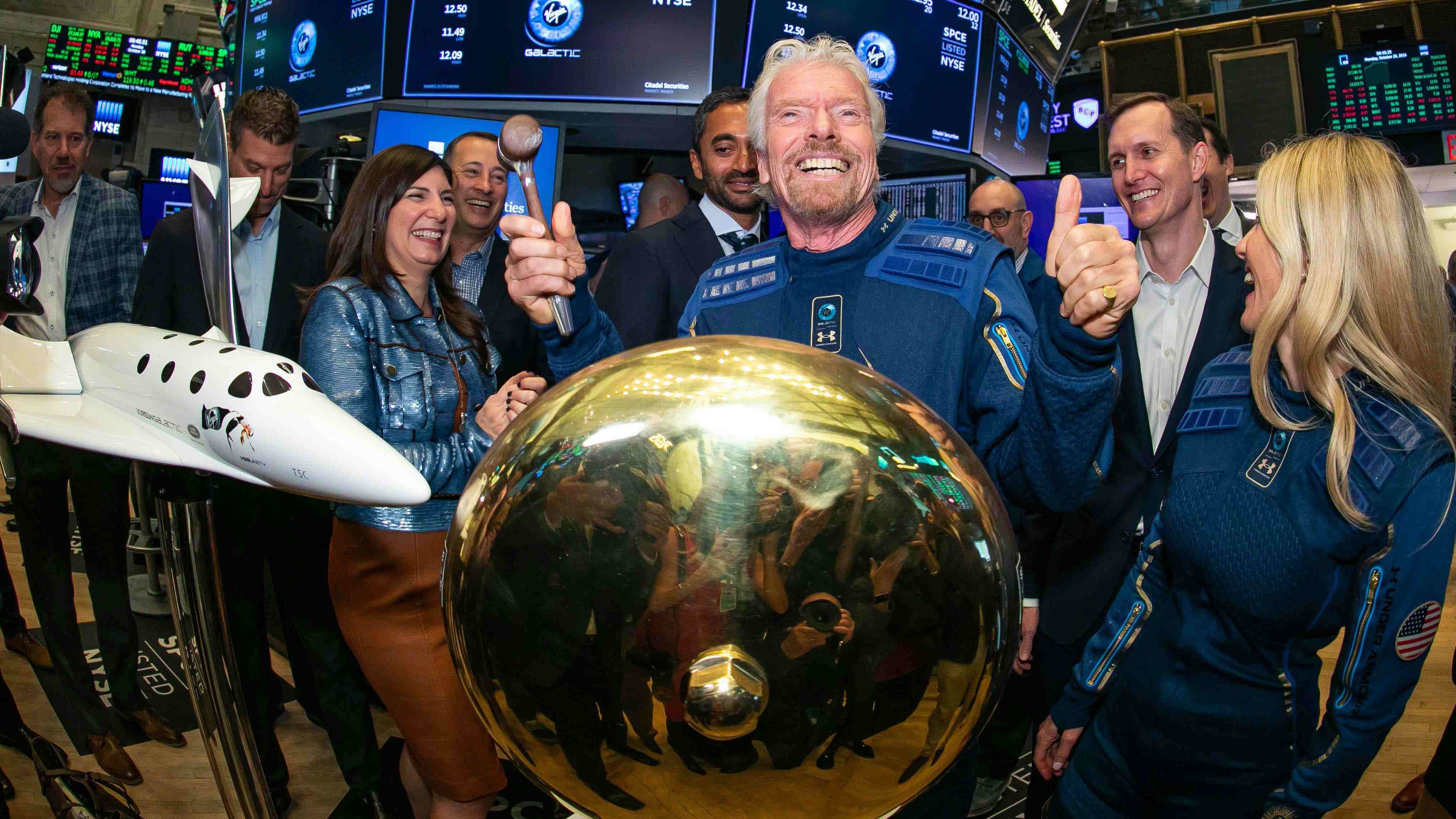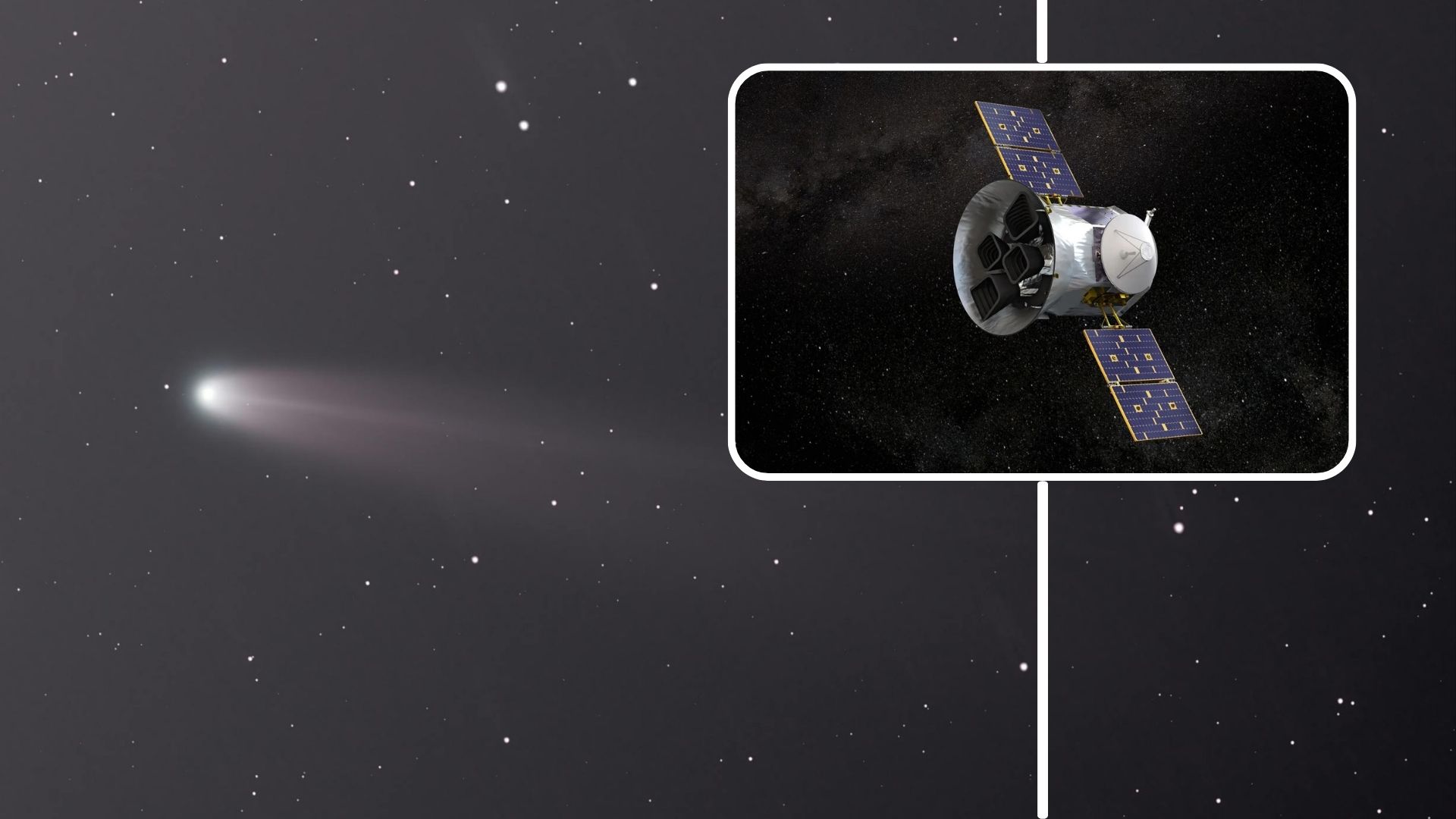Branson blues? Challenges face Virgin Galactic and Virgin Orbit
Virgin Galactic may be sued by shareholders, and Virgin Orbit has lost a lot of cash recently.

Billionaire Richard Branson is facing some troubles with his two spaceflight companies.
Shareholders in Virgin Galactic launched a class action lawsuit with numerous allegations about the space tourism company, which grounded its VSS Unity SpaceShipTwo vehicle and its carrier plane, VMS Eve, for maintenance and upgrade work after a high-profile flight in July 2021 starring Branson himself. The two vehicles are likely to start flying again in early 2023, company officials said recently.
A U.S. judge ruled Monday (Nov. 7) that shareholders "could try to prove that Virgin and Branson defrauded them into overpaying for the space tourism company's shares," although other claims were dismissed, according to Reuters. Shares in Virgin Galactic are down 90% from their peak in February 2021.
U.S. District Judge Allyne Ross in Brooklyn ruled that shareholders can question past statements from Virgin Galactic, such as a July 2021 one from Branson saying his flight was "flawless." (VSS Unity went outside its assigned airspace for 101 seconds during that flight, which is a regulatory issue).
Meanwhile, satellite launching company Virgin Orbit is still awaiting regulatory approval for a launch from Cornwall in the United Kingdom that the company had planned for November.
In photos: Virgin Galactic's 1st fully crewed spaceflight with Richard Branson
In quarterly results released on Monday, Virgin Orbit lowered its 2022 launch forecast to three excursions (down from a previously estimated range of four to six launches). Its cash on hand has fallen to just $71.2 million, and more than a third of the money remaining ($25 million) came from a Friday (Nov. 4) investment by major shareholder Virgin Group, which is the portfolio of Branson's businesses. (Both Virgin Galactic and Virgin Orbit are part of the Virgin Group.)
Breaking space news, the latest updates on rocket launches, skywatching events and more!
Virgin Orbit is aiming to recoup its costs through increasing revenue per launch and by looking for efficiencies in production. Revenue from its backlog of contracts from confirmed customers, however, is also down from the previous quarter; that fell 12%, to $143 million.
Virgin Orbit launches satellites in midair, using a modified 747 jet named Cosmic Girl. that carries a rocket beneath its wing. The airplane landed at Newquay Airport in Cornwall on Oct. 11, where it remains for the time being.
Once approved for the first Cornwall mission, Cosmic Girl will carry a LauncherOne rocket and release it into the upper atmosphere. The two-stage rocket will then send eight small satellites to space for the first-ever orbital launch performed in the U.K. (Virgin Orbit has conducted five orbital flights to date, all of which lifted off from the Mojave Air and Space Port in California.)
Virgin Orbit's air-launch strategy is unique among the competition, but there are several other companies vying to make regular orbital launches from the U.K. Orbex, for example, announced a $63 million fundraising round in October ahead of an expected 2022 vertical launch with a rocket at Space Hub Sutherland, a new spaceport in northern Scotland.
Elizabeth Howell is the co-author of "Why Am I Taller?" (ECW Press, 2022; with Canadian astronaut Dave Williams), a book about space medicine. Follow her on Twitter @howellspace. Follow us on Twitter @Spacedotcom or Facebook.

Elizabeth Howell (she/her), Ph.D., was a staff writer in the spaceflight channel between 2022 and 2024 specializing in Canadian space news. She was contributing writer for Space.com for 10 years from 2012 to 2024. Elizabeth's reporting includes multiple exclusives with the White House, leading world coverage about a lost-and-found space tomato on the International Space Station, witnessing five human spaceflight launches on two continents, flying parabolic, working inside a spacesuit, and participating in a simulated Mars mission. Her latest book, "Why Am I Taller?" (ECW Press, 2022) is co-written with astronaut Dave Williams.
